Earthjustice Program Report
Farming for Our Future
Our food and farming system affects everything Earthjustice fights for — a stable climate, clean air and water, biodiversity, public health, and environmental justice.
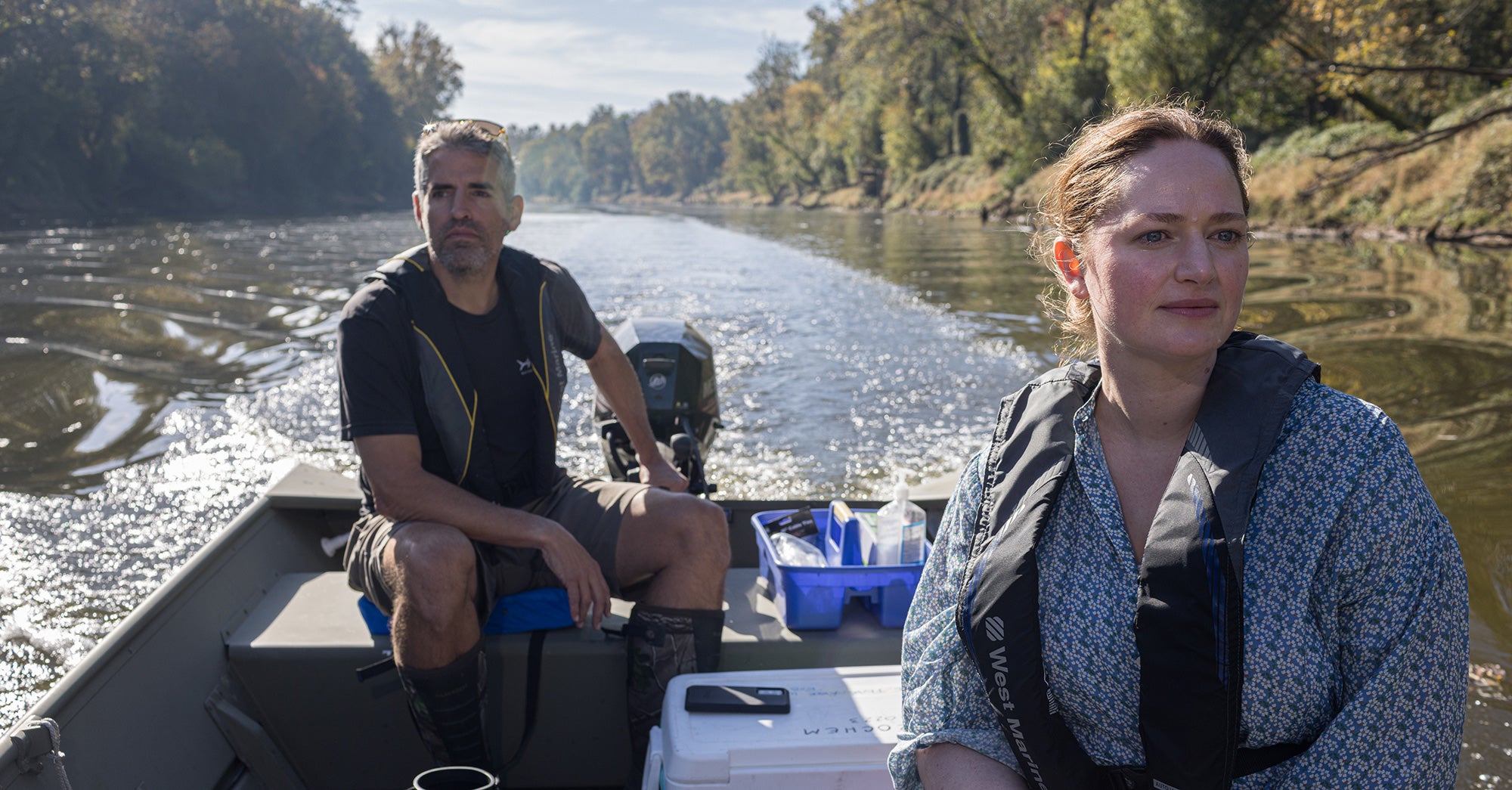
Through litigation, legislative and administrative advocacy, and communications, Earthjustice’s Sustainable Food and Farming team advances the transition to a cleaner, safer, and more climate-friendly food system.
Critical to our work have been our partnerships with key stakeholders: sustainable farmers who challenge federal rollbacks and press lawmakers to support climate-friendly farming practices; farmworkers who fight for stronger protections against pesticides; consumer advocacy organizations who challenge corporate greenwashing and government secrecy; and frontline communities who push for meaningful limits on air and water pollution.
Because of these partnerships, we’ve made important progress.
Counteracting Federal Attacks
Earthjustice has a formidable record of success squaring off against federal agencies. Among other tactics:
When agencies fall short of their obligations, we file lawsuits.
During the first Trump administration, we helped to prevent several dangerous rollbacks, including efforts to gut farmworker pesticide protections and nutrition standards for school meals. When the second Trump administration began its onslaught on the environment, we did not hesitate to fight back.
Victory forcing the USDA to reinstate agricultural climate data
On behalf of our longtime partners at the Northeast Organic Farming Association of New York and two national environmental groups, we succeeded in securing Earthjustice’s first victory against the second Trump administration convincing the U.S. Department of Agriculture (USDA) to walk back its removal of climate-related webpages relied on by farmers, researchers, and advocates working to build more climate-resilient agricultural systems.
The USDA’s sudden climate data purge hit farmers the hardest, and it happened just days after the Trump administration took office.
Earthjustice, working with the Knight First Amendment Institute, immediately sued. The suit garnered tremendous media attention, and our team and clients did dozens of interviews. The pressure worked. Days before an initial hearing, the USDA reversed course, agreeing to reinstate the removed webpages, as reported in The New York Times: “Farmers Sued Over Deleted Climate Data. So the Government Will Put It Back.” As of July, all webpages are back up.
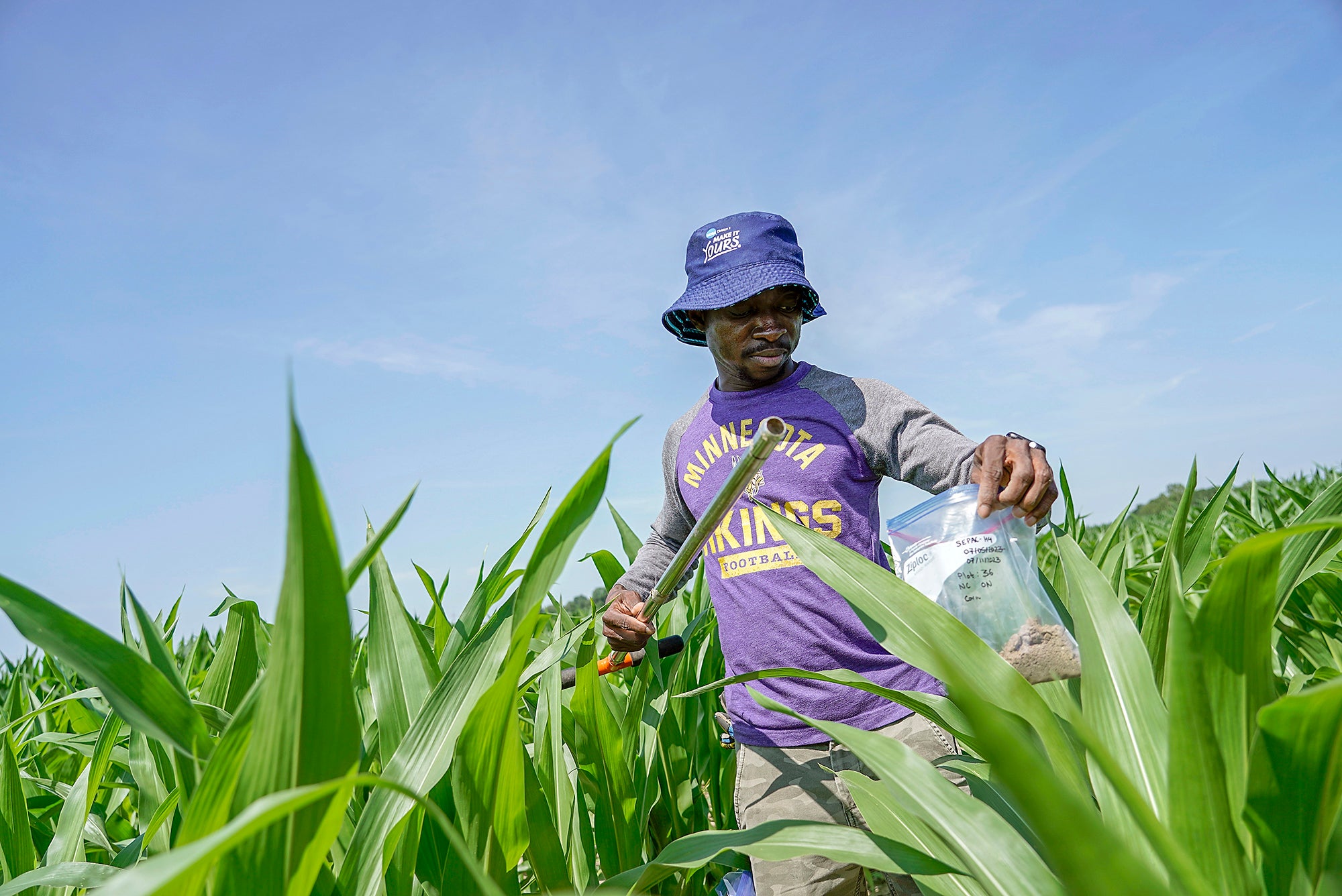
Victory stopping USDA grant terminations
In June, together with FarmSTAND and Farmers Justice Center, we sued the USDA on behalf of nonprofit organizations serving farmers and communities for terminating their grants for allegedly no longer aligning with new agency priorities. Without the money, they faced serious economic hardships, including having to terminate programs, leave land fallow, lay off staff, and curtail education efforts.
In August, we secured a preliminary injunction ordering the USDA to restore more than $34 million in grant funding. Our clients will use these USDA grants to work toward creating a more just, sustainable, and resilient food and farming system.
The USDA must now produce the administrative record to show the reasoning for its decision, which will allow us to directly challenge the underlying policy on which we allege the USDA is basing the en masse terminations. We are hopeful that the evidence in the record will provide a solid foundation to help hundreds of additional grantees to get their funding.
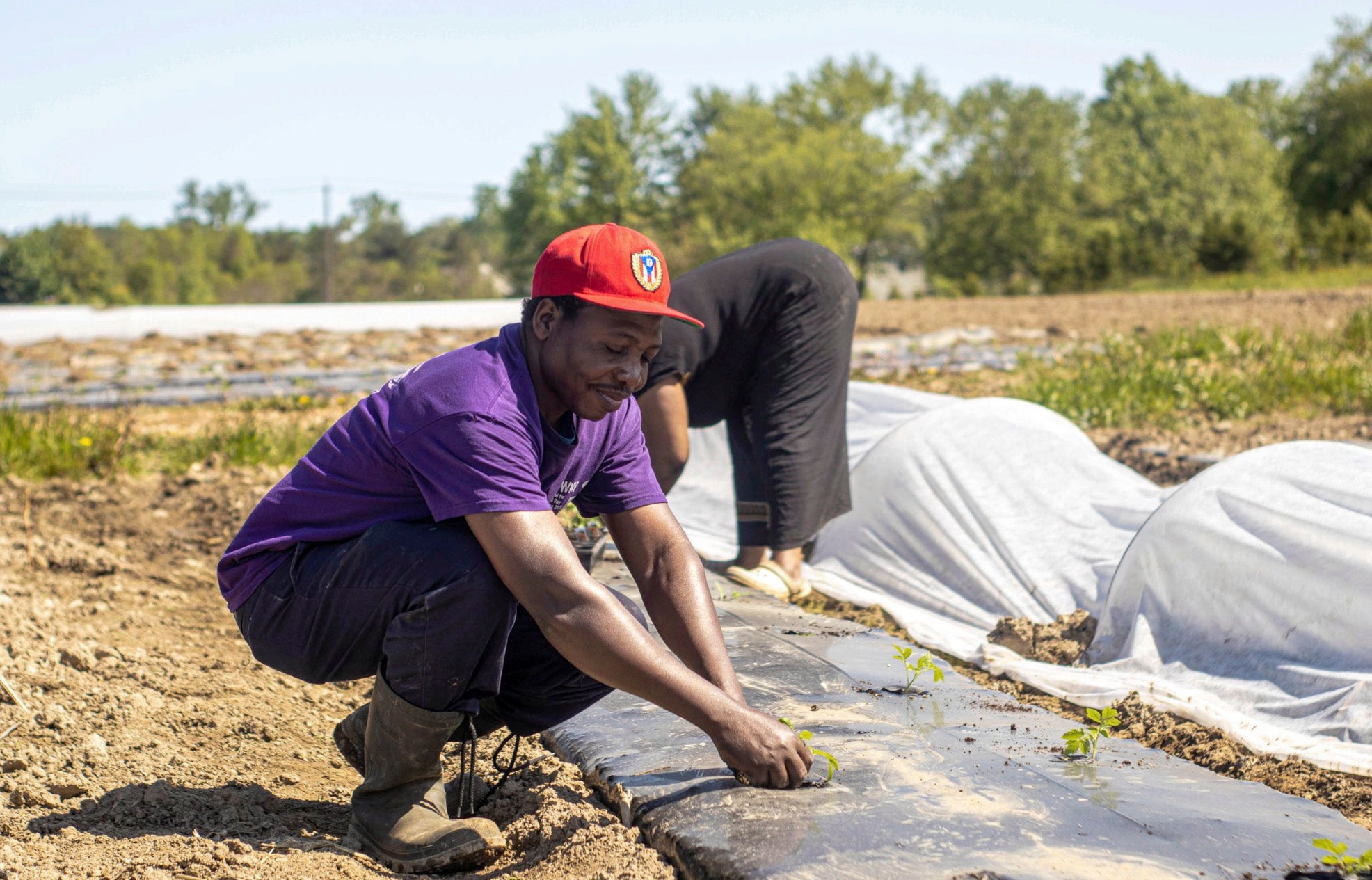
Demanding the release of federal grant funds to farmers
The Trump administration’s early attack on our climate also included freezing federal grants intended to support farmers transitioning to climate-friendly practices. Again, we took prompt action.
On behalf of farmers in Maryland, Massachusetts, and Mississippi, as well as a number of nonprofit organizations, we sued the USDA in March for unlawfully withholding grant funds that had already been committed. The outcome will have implications across all agencies that administer similar federal grant funds.
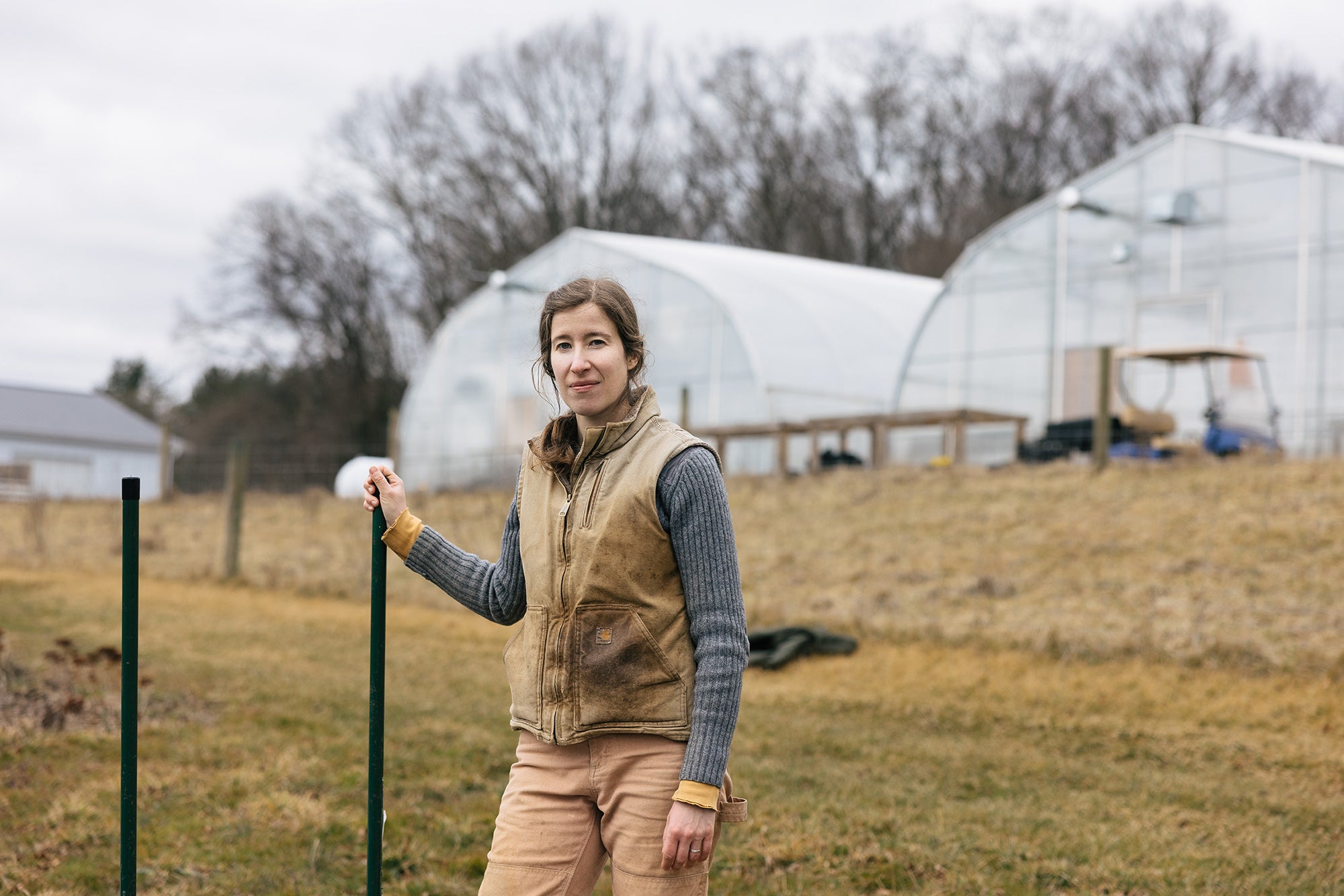
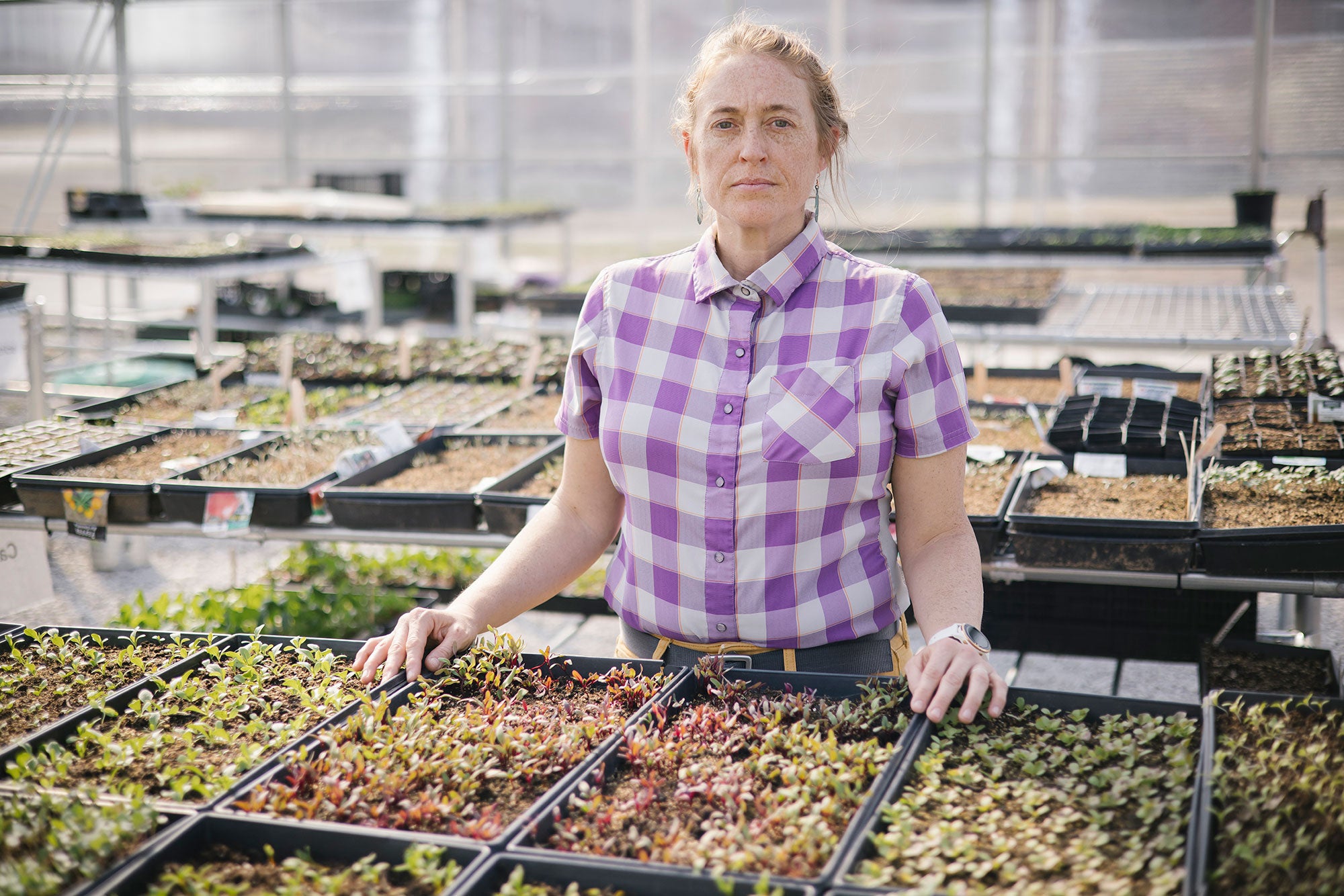
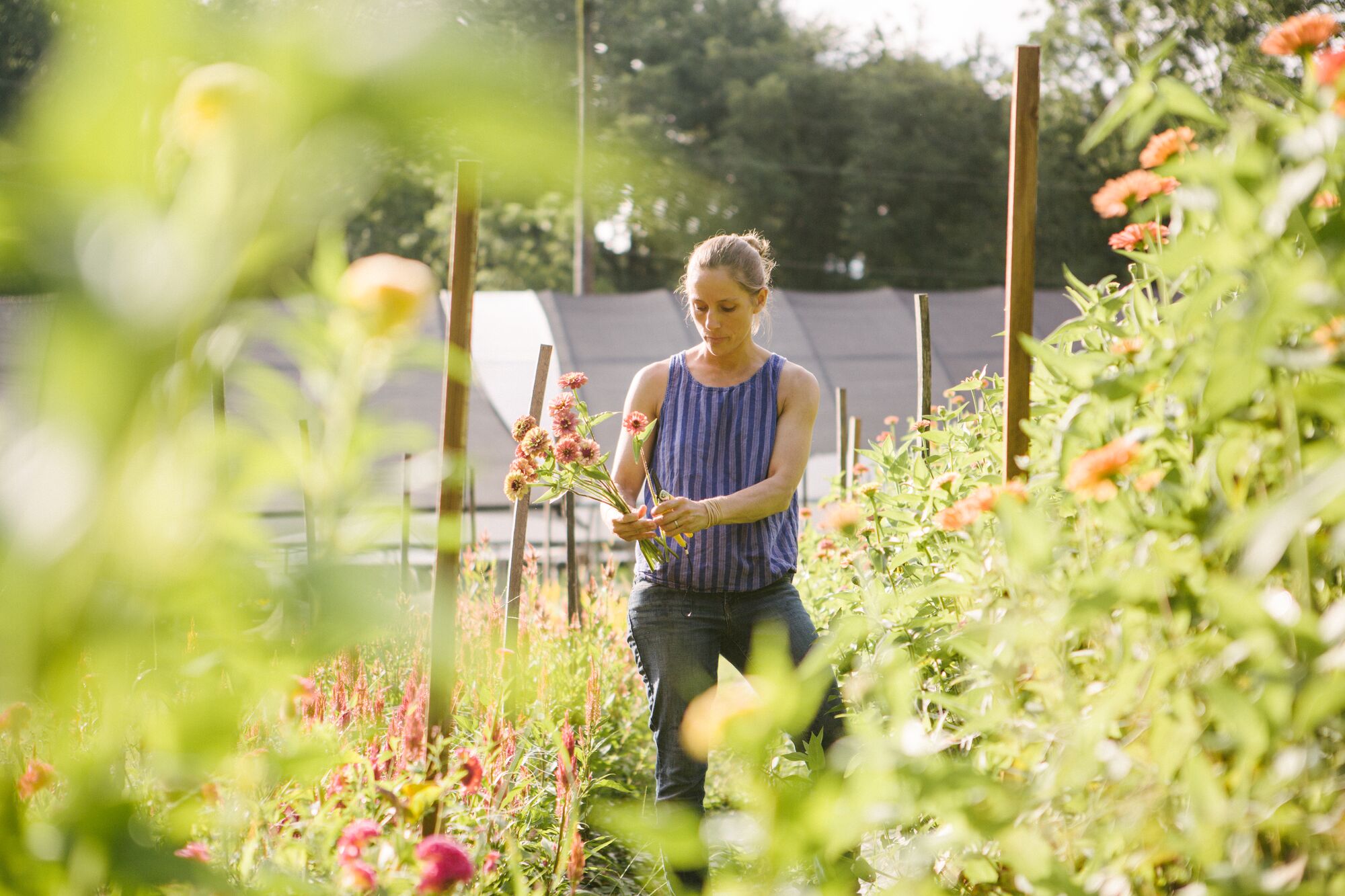

Laura Beth Resnick of Butterbee Farm in White Hall, Maryland. As a result of our litigation, Butterbee Farm received money to recoup $36,000 spent for solar panel installation. (Alyssa Schukar for Earthjustice)
Plaintiffs in the lawsuit. Brien Darby, Executive Director of Cultivate KC. (Brad Zweerink / Earthjustice) Brian Sauder, President and CEO of Faith in Place. (Eric Davis for Earthjustice) Elisa Lane, owner of Two Boots Farm in Hampstead, Maryland. (Photo courtesy of Ann-Marie VanTassell)
The Farm Bill
Unlike other sectors of the economy, agriculture is directly influenced by a super-sized spending bill — generally known as the Farm Bill — that Congress must authorize or extend every five years.
The Farm Bill provides billions of dollars in subsidies to farmers and rural communities, while also funding the critically important Supplemental Nutrition Assistance Program (SNAP), which provides food benefits to low-income families. Recent fights over the Farm Bill reauthorization have been highly consequential — and unprecedented.
With our consistent and intensive pressure, though, we’ve helped ensure that lawmakers understand the connection between agriculture and climate change. In addition to an array of lobbying efforts, we brought groups of sustainable farmers to Washington several times, and ultimately, helped to pass the groundbreaking Inflation Reduction Act (IRA) in 2022.
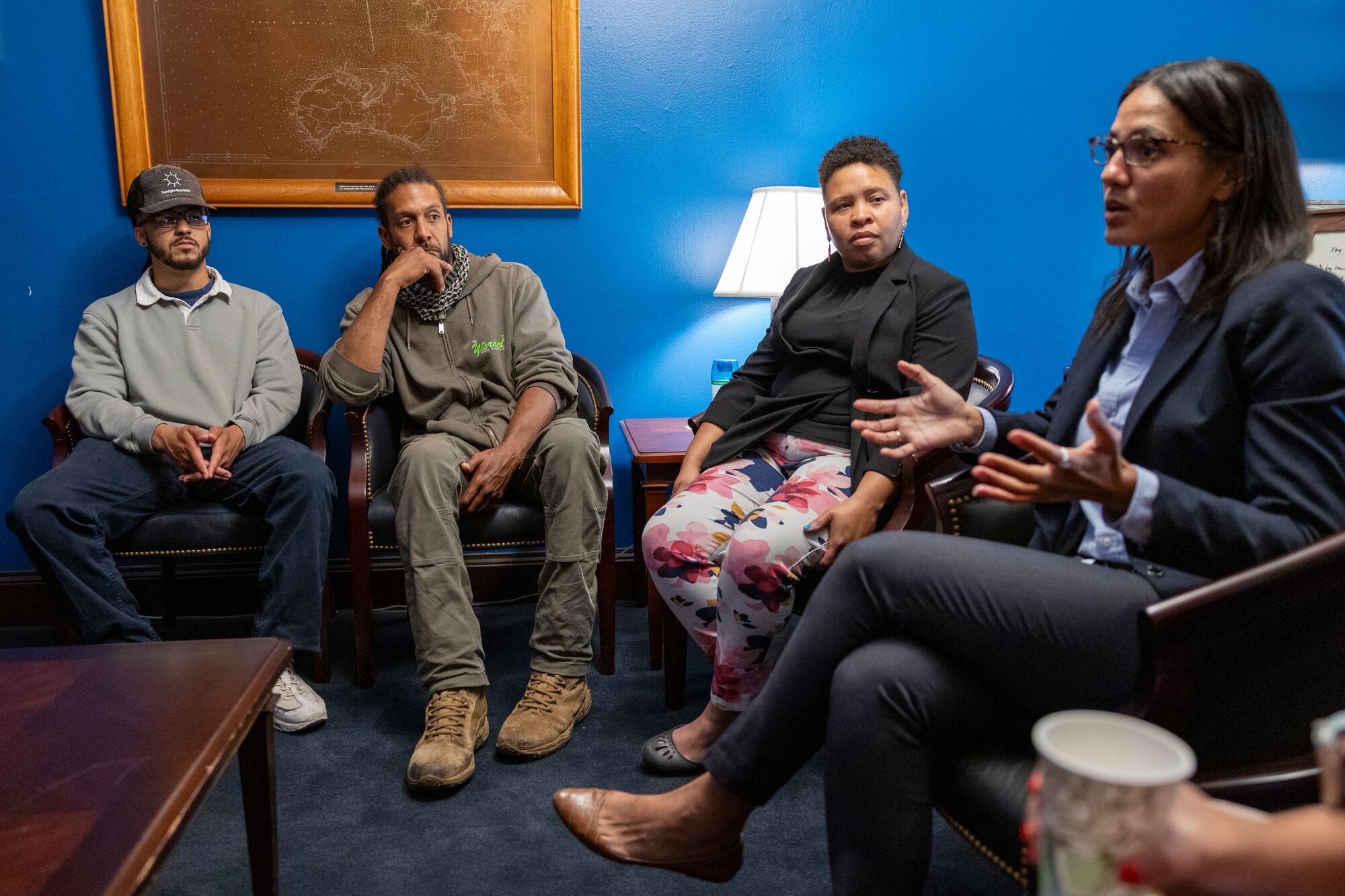

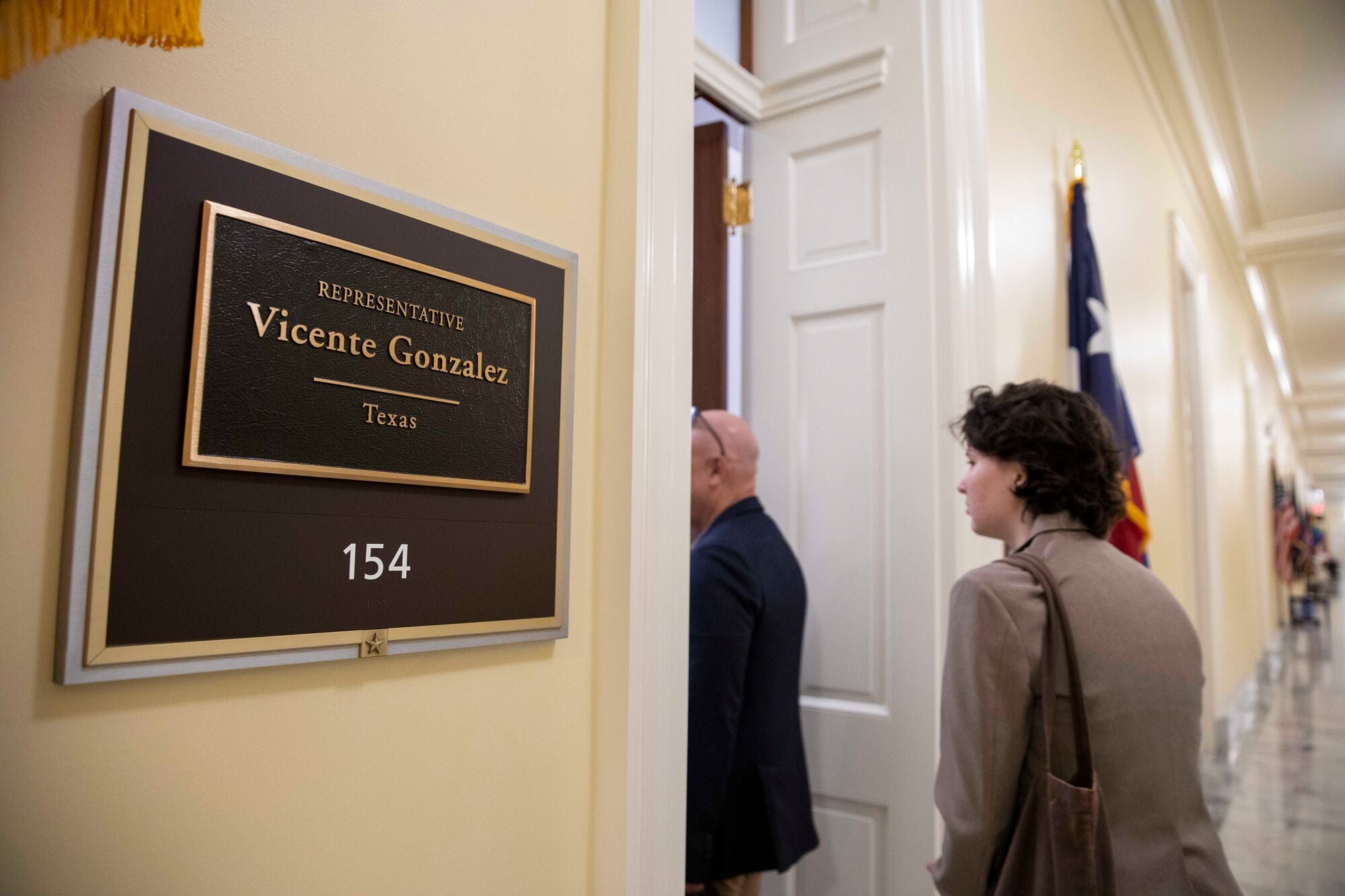
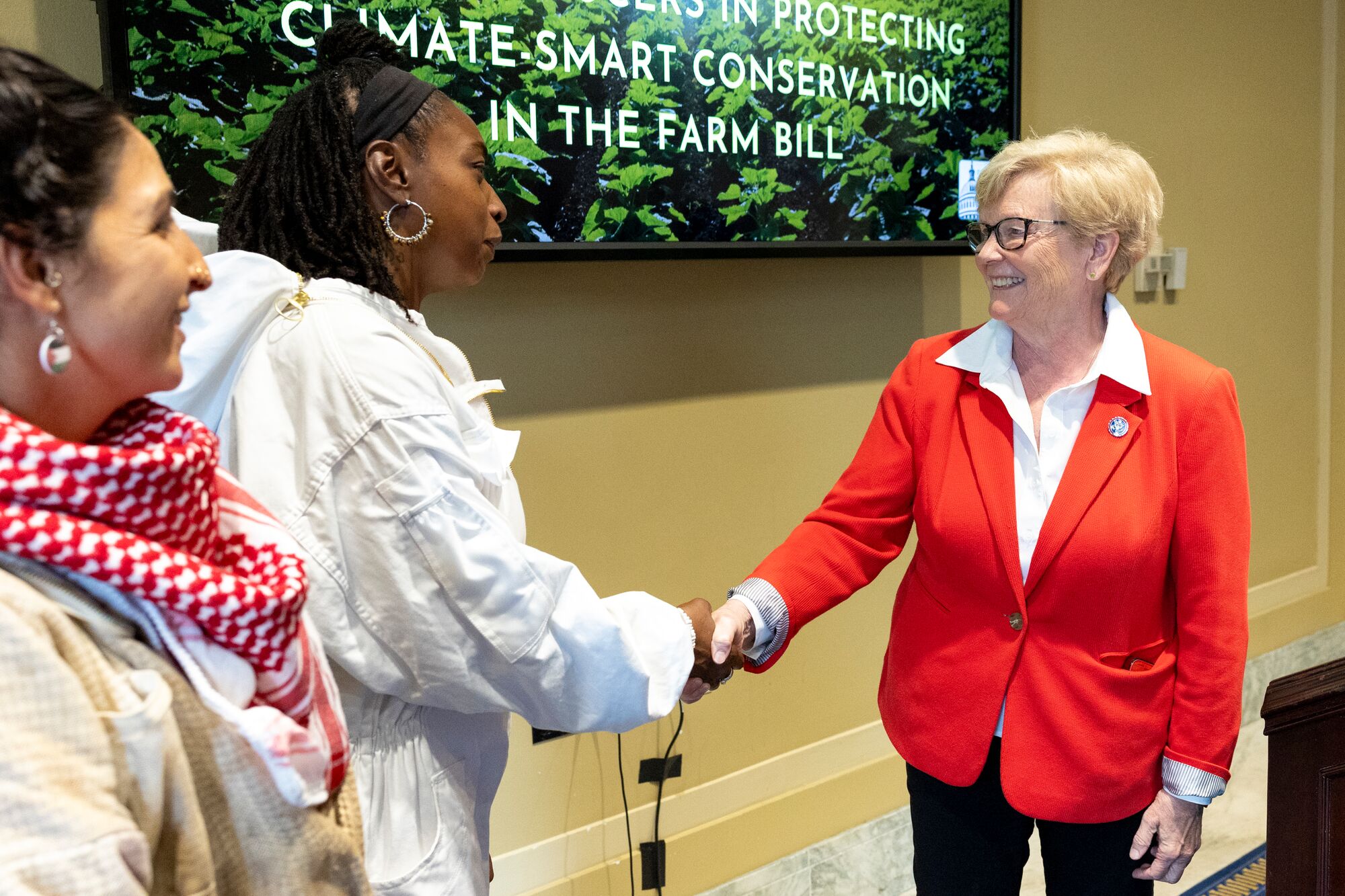
Farmers and farmworker advocates traveled to Washington, D.C., to meet with congressmembers and their staff to make the case for an improved Farm Bill. (Amanda Andrade-Rhoades for Earthjustice)
The IRA pledged an extra $20 billion over four years to Farm Bill conservation programs, and it included the powerful condition that this money be spent only on projects that mitigate climate change. Never before had Congress acknowledged the link between agriculture and climate change. Once the IRA became law, we pressed the USDA to spend IRA funds to prioritize practices that are most effective at mitigating climate change. Up until January 2025, the USDA attempted to do so.
Unfortunately, legislative progress stalled after passage of the IRA, and Congress missed its deadline for reauthorizing the Farm Bill in 2023. Following two more extensions, a new Congress addressed farm programs through the Republican reconciliation budget bill. The bill is disastrous, reducing SNAP payments, directing more money to industrial agriculture, and expanding climate-harming biofuel tax credits.
But working with our allies and partners, including our 501(c)(4) advocacy partner Earthjustice Action, we were able to achieve one of a few wins: Congress guaranteed that the IRA funds will remain devoted to farm conservation, although it eliminated the requirement that those funds be necessarily used to mitigate climate change. We continue to press the USDA to spend these IRA funds to address the imminent climate threats to, and from, our agriculture system.
Congress will likely take up the Farm Bill again later this year. We’ll have an enormous challenge to defeat anti-environmental provisions, and we’re keeping an especially close eye on efforts to limit the abilities of state and local governments to adopt heightened environmental protections.
Exposing & Reducing Agriculture’s Climate and Environmental Harms
Much of our advocacy challenges the false yet pervasive narrative that our food system consists entirely of independent family farms, green pastures, and free-roaming animals.
In fact, the food system is highly industrialized and heavily polluting. Thanks in large part to the deep-pocketed and well-entrenched farm lobby, industrial agricultural facilities are exempt from most environmental regulation. Decades of industry gas lighting and intentional obfuscation by government entities have systematically concealed the true impacts of food production and agriculture from the public eye.
We’re working to increase transparency and oversight, and to reduce the environmental harms from industrial food production.
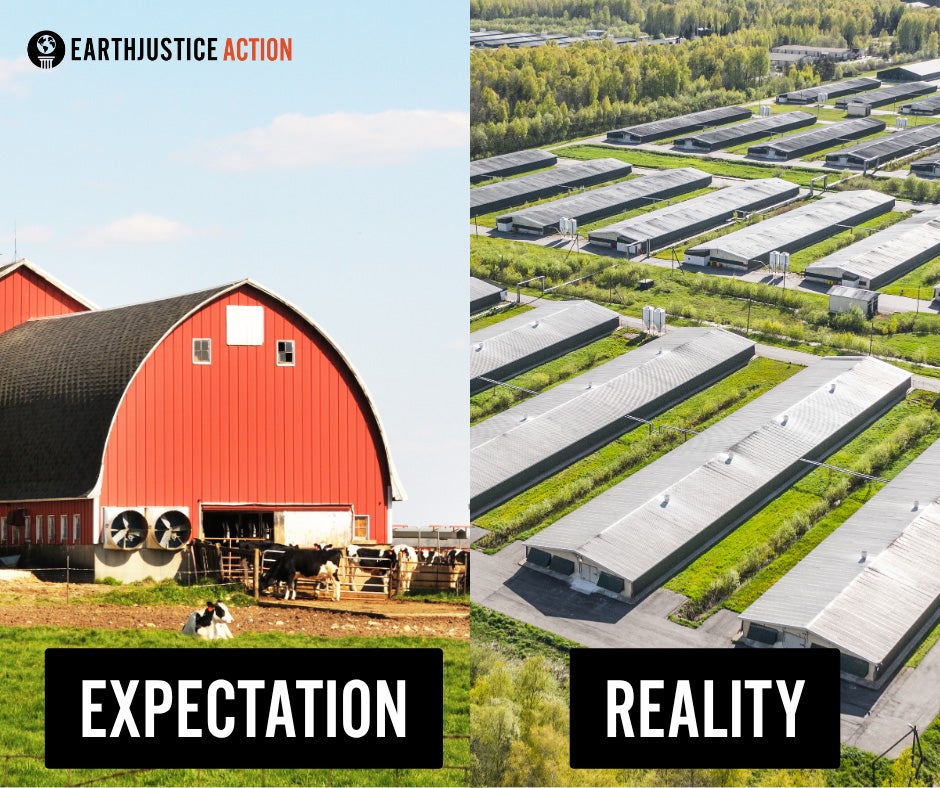
Holding meat companies accountable for their climate impact
In late 2024, on behalf of Environmental Working Group and with FarmSTAND, Animal Legal Defense Fund, and Edelson PC as co-counsel, we sued Tyson Foods for practices that we allege unlawfully mislead consumers about the climate impact of its products.
Tyson is the world’s second largest meat company, and its greenhouse gas emissions are equivalent to those of entire industrialized nations. But, for years, Tyson has represented that it will achieve “net zero” emissions status by 2050 and that it has a “climate-smart” beef program. We believe these targets are not achievable given the company’s longstanding failure to take meaningful steps to reduce its climate-harming emissions.
Marking a profound turning point in the fight against climate greenwashing, Tyson agreed to a settlement in which it must stop making “net-zero” and “climate-smart” beef claims for five years; it cannot make new related claims unless supported by expert opinion and fact. We celebrate what is a clear signal to consumers to be cautious of major beef producers’ marketing their products as “climate-smart.”
Our victory with Tyson comes on the heels of a similar greenwashing settlement reached between the New York Attorney General’s office and meat company JBS USA, which also agreed to stop making unsubstantiated claims about reaching net zero.
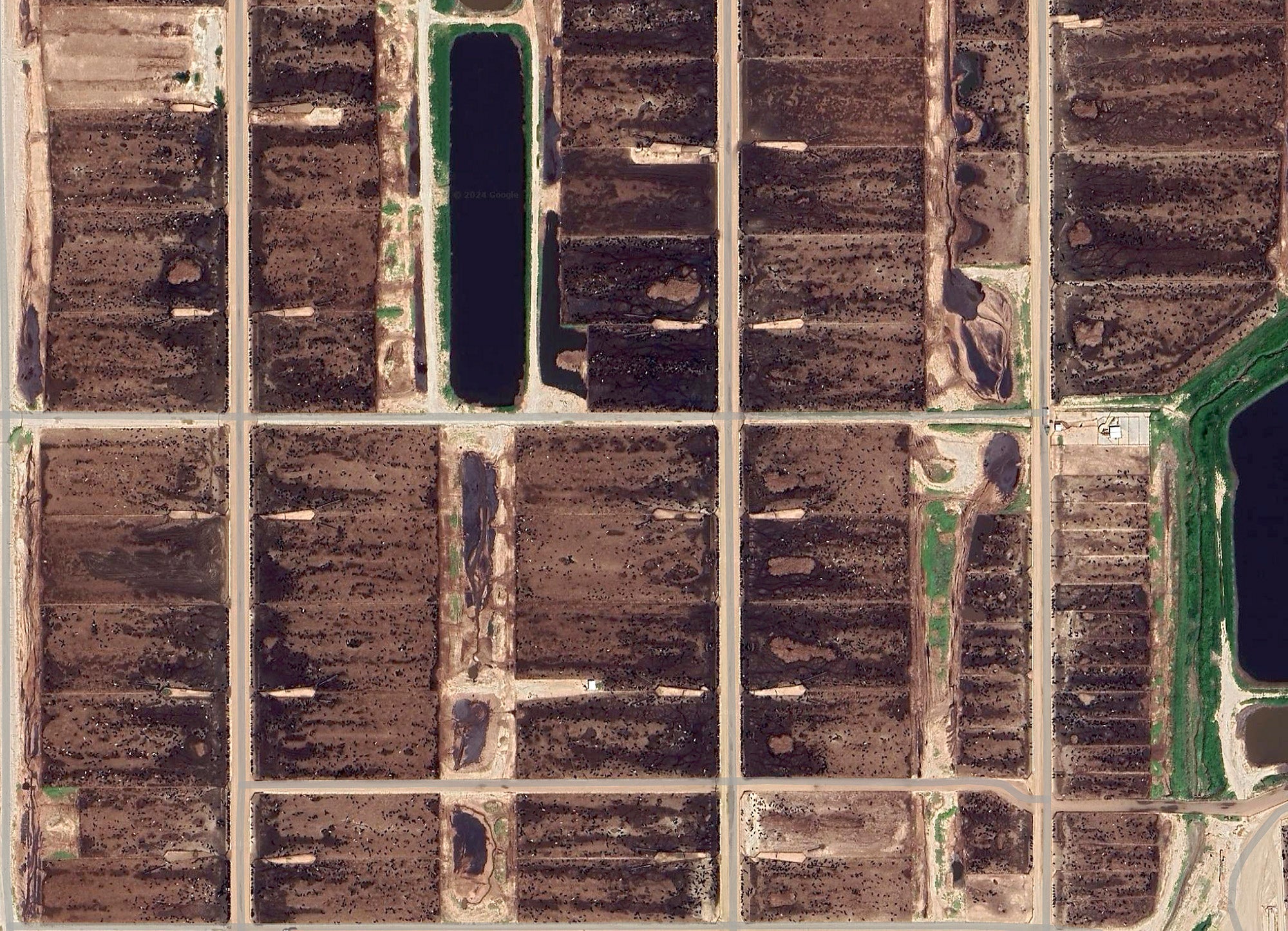
Fighting to obtain information about animal factory emissions
Historically there has been little to no measurement or reporting of emissions from animal feeding operations, which confine hundreds, thousands, or even over a million animals and generate staggering quantities of manure. These emissions include copious pollutants harmful to health and the climate, as well as some legally designated as "hazardous." Under the Emergency Planning and Community Right-to-Know Act (EPCRA), there are special rules for hazardous air pollutants such as ammonia and hydrogen sulfide. According to a recent study, this kind of air pollution is responsible for almost 13,000 deaths a year — more than are attributed to air pollution from coal-fired power plants. But unlike at any power plant in the country, the public is not currently informed of large releases of ammonia and hydrogen sulfide from factory farms.
To change this, Earthjustice and our partners challenged an EPA rule that exempts animal feeding operations from reporting emissions of hazardous air pollution required under EPCRA. Although we lost the first round in court, we are currently appealing.
Outside of the courtroom, we're also exploring:
Since taking on this issue in 2008, Earthjustice has secured important wins, and we remain in it for the long haul.
We are also continuing efforts to press the EPA to close a Clean Air Act loophole that, for decades, has allowed animal factories to avoid reducing air emissions. The EPA has long blamed its failure to oversee air pollution from animal factories on a purported lack of reliable “emissions estimating methodologies.”
But reliable methodologies exist. In November 2024, the EPA released new draft methodologies for public review. We submitted comments arguing that the EPA must finalize those methodologies and require animal factories to immediately come into compliance with clean air laws, while also gathering new data to ensure that the methodologies improve over time.
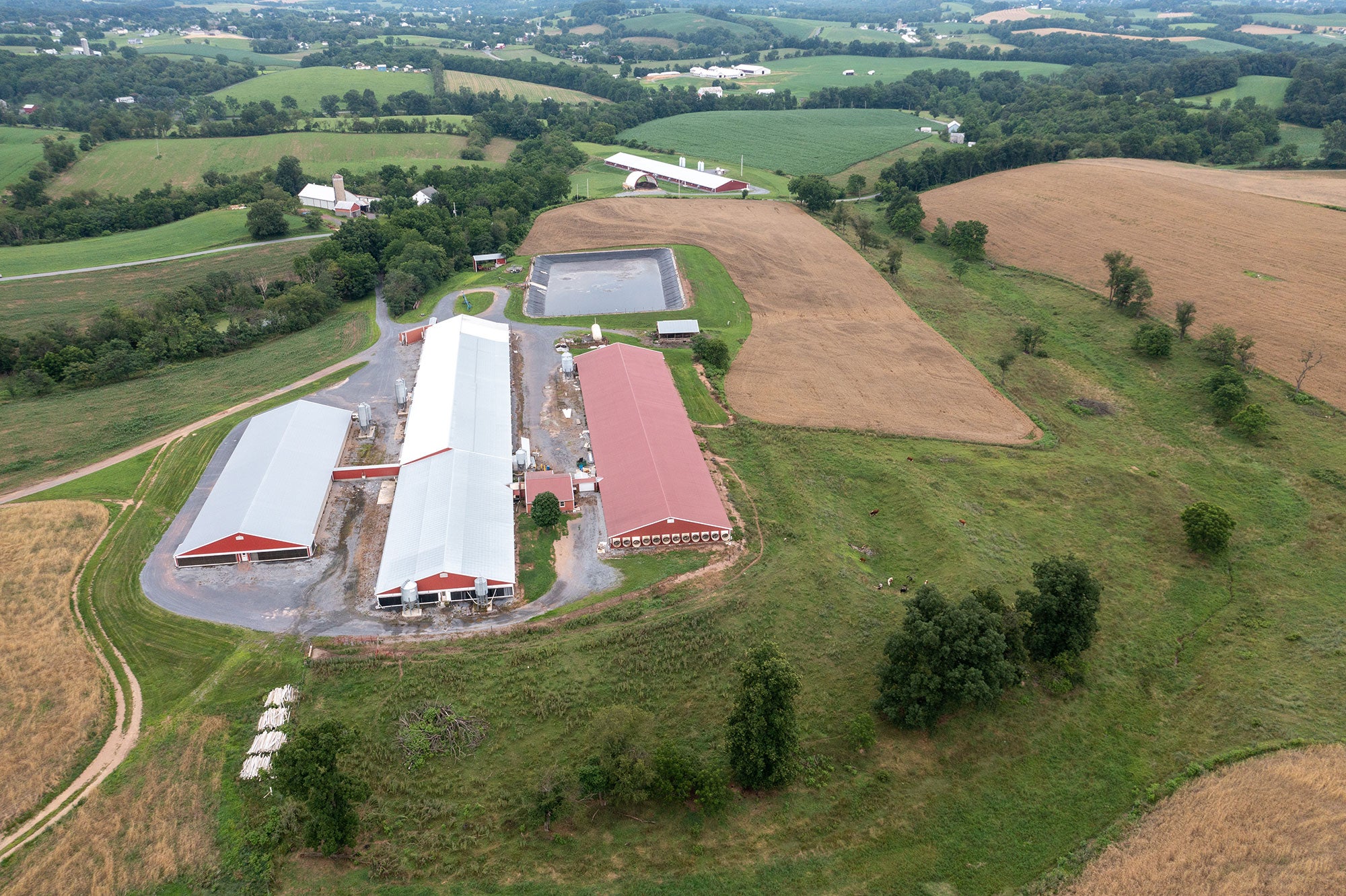
Exposing the true climate impact of crop-based biofuels
In addition to working to reveal the true consequences of animal factories and meat production, we are challenging the false narrative that crop-based biofuels benefit the climate.
In 2005 and 2007, Congress created the Renewable Fuel Standard (RFS) program, which mandates the production and use of biomass-based fuels, such as corn ethanol and soy-based diesel, to enhance energy security and slow global warming.
The RFS program is based on the premise — which most scientists now understand to be mistaken — that crop-based biofuels are better for the climate than petroleum fuels.
Since the RFS Program began, production of corn ethanol and soy-based diesel has boomed, leading to millions of acres of land conversion.
Even with all the harms we know result from combusting fossil fuels, the costs of biofuels are worse.
The EPA sets the volumes of renewable fuels that refiners must blend into their fuel, supposedly weighing climate, environmental, cost, and other factors.
Representing the National Wildlife Federation, we successfully challenged the RFS volumes for 2023–2025, arguing that the EPA ignored modern scientific studies — including its very own climate review — showing that crop-based biofuels have no climate benefits. In June, the Court of Appeals for the D.C. Circuit agreed with us, finding that the EPA’s reliance on outdated science was unlawful. The agency now must either try again to justify the current volumes or else revise the volumes so that they are consistent with its own data.
It is more important than ever to get the record straight. Recently, the EPA proposed RFS volumes for 2026-2027 that vastly increase the mandate for soy-based diesel. The new volumes would require over 10 million additional acres of soybeans, on top of the 50 million acres of corn and soy already in production for biofuels. We submitted extensive public comments on behalf of a growing coalition of organizations that oppose this misguided boondoggle.
Gathering data through the Freedom of Information Act (FOIA)
Under FOIA, federal agencies must, in most cases, allow the public to access government records. In the realm of agriculture, where historically almost all operational companies have been secretive about their impacts, FOIA is a powerful tool to increase transparency.
With our partners, we use FOIA to obtain vital data related to agriculture’s climate and environmental impacts.
When the USDA responded with highly redacted documents, supporting Tyson Food’s claims that the climate data are “trade secrets,” we sued.
We are now awaiting a decision from the court.
We submitted a FOIA request on behalf of the Animal Legal Defense Fund seeking information from the USDA regarding its dubious approval of greenwashing advertisements funded by the “Beef Checkoff” program, a government initiative to increase demand for beef.
When the USDA failed to respond, we filed a lawsuit.
Ample evidence shows that digesters are costly, not fully effective, and create local air pollution. They are a false solution to the climate crisis.
For instance, when the USDA improperly denied a professor access to records concerning projects funded through the Climate-Smart Commodities Program, we sued.
Thanks to our lawsuit, the professor recently received almost all the information, which will inform important climate research.
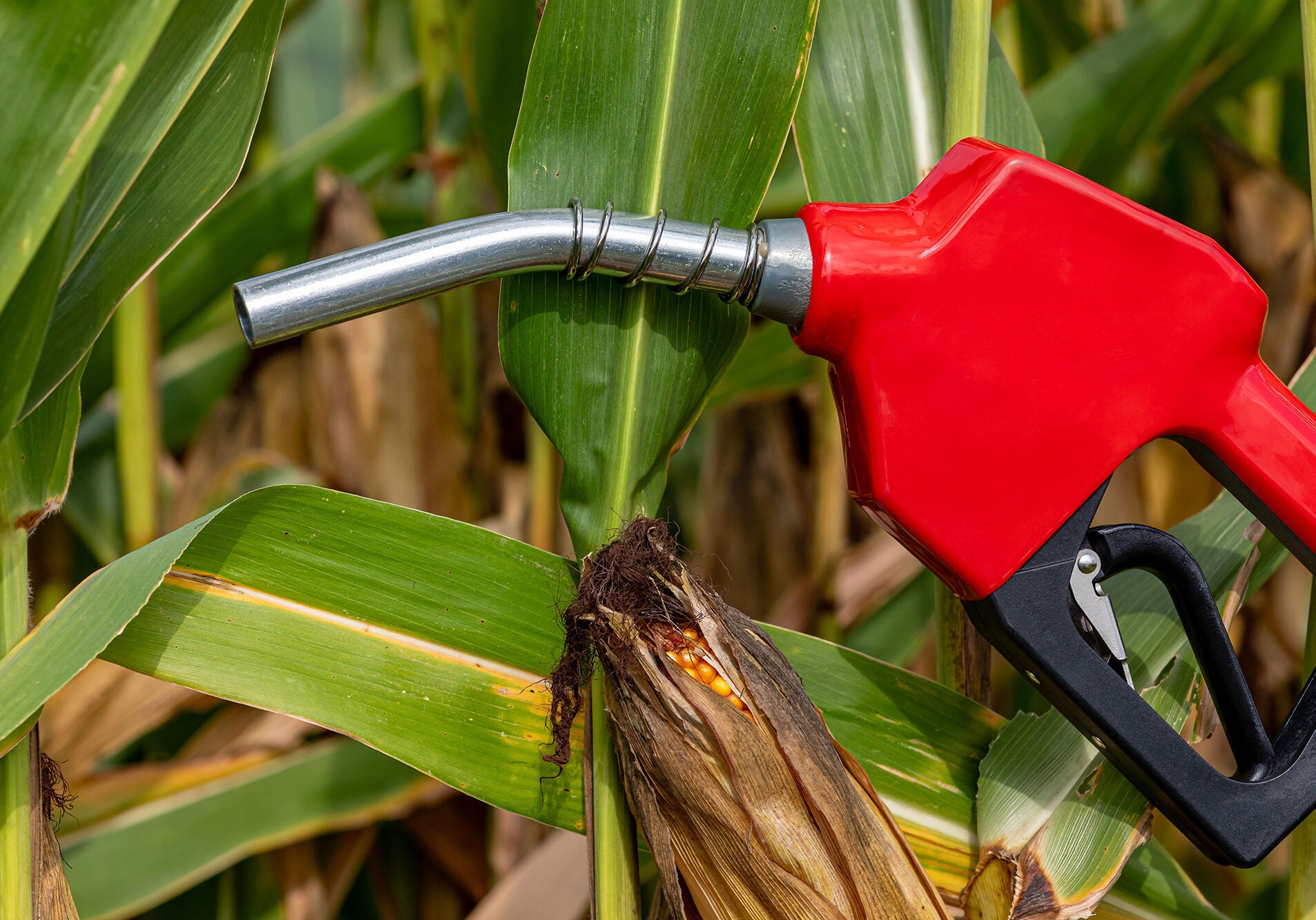
Biofuel Production
Agency Action USDA proposal to give excessive credit to “climate-smart” biofuel production practices
Why We Commented Growing crops for fuel increases net greenhouse gas (GHG) emissions
Our Partners Breakthrough Institute, Center for Biological Diversity, Mighty Earth, and others

Carbon Credits
Agency Action USDA rule to expand private carbon offset markets, which is a hand out to fossil fuel polluters
Why We Commented Agriculture’s GHG reductions have serious limitations and cannot “offset” fossil fuel emissions elsewere
Our Partners Coalition of conservation groups and scientists
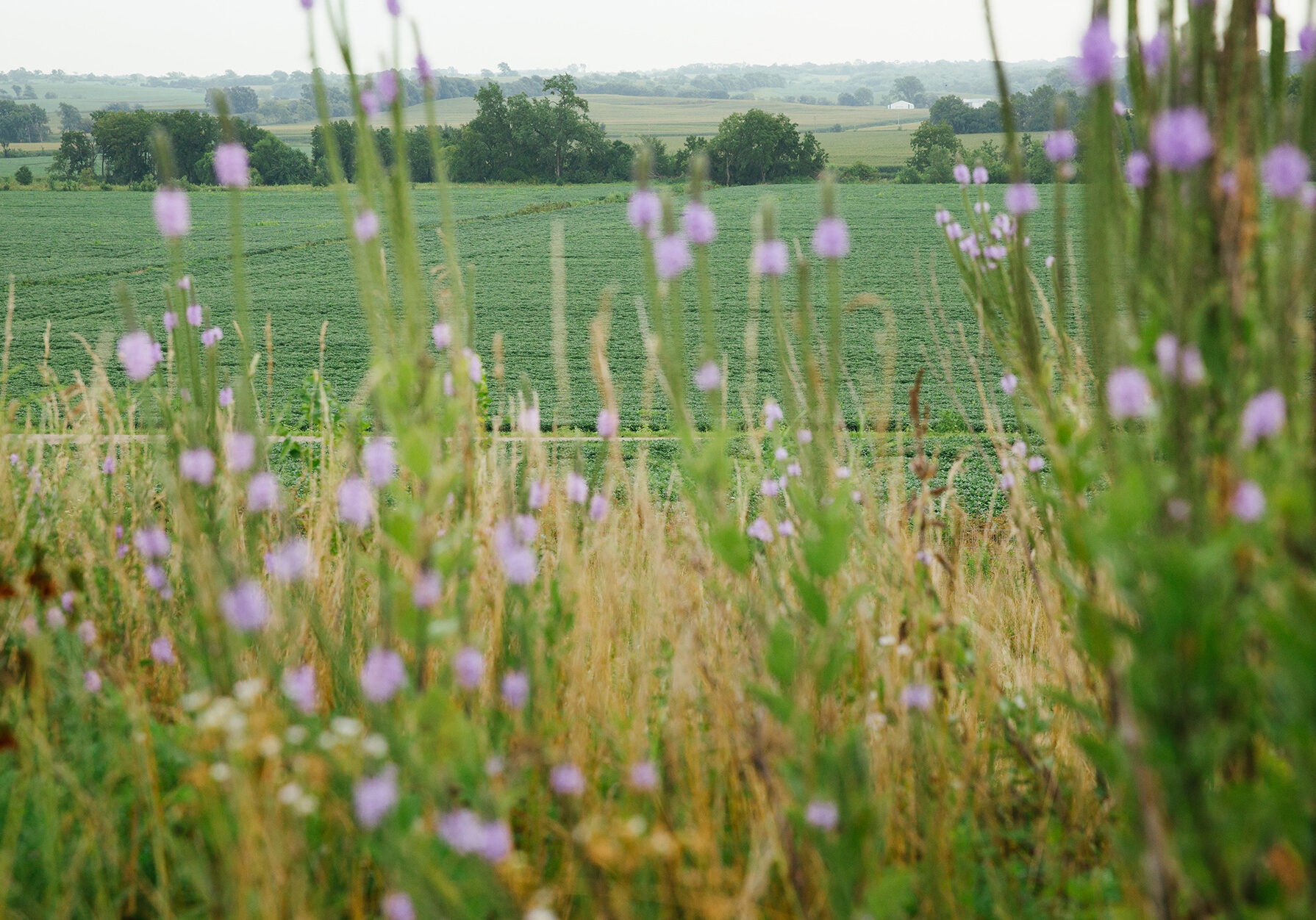
“Climate-Smart”
Agency Action USDA list of climate-smart agricultural practices that are eligible for IRA funding
Why We Commented Many practices claimed to be “climate-smart” increase GHG emissions over the long-term
Our Partner Environmental Working Group
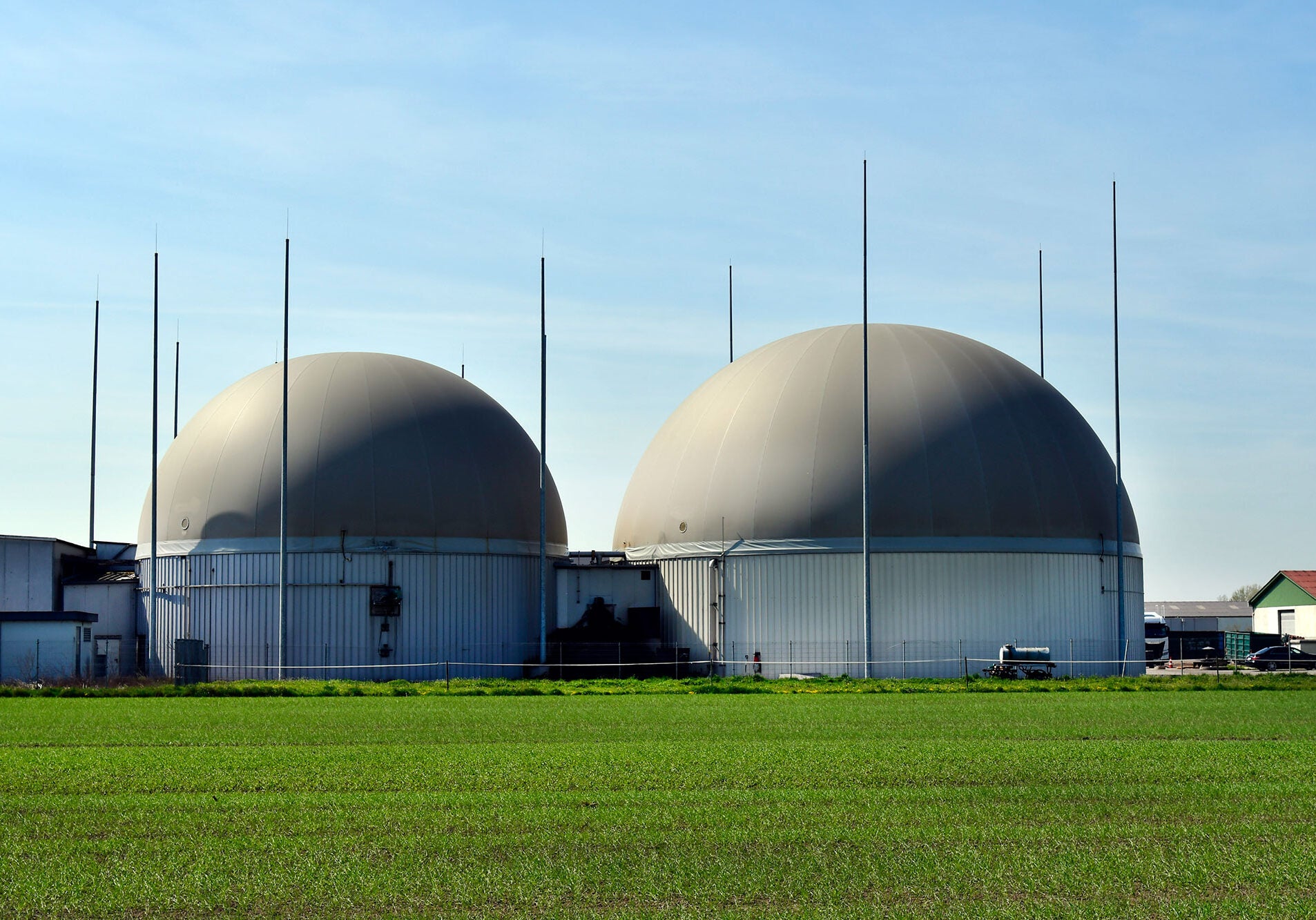
Biogas From Manure
Agency Action IRS proposal to give IRA clean electricity tax credits to manure biogas
Why We Commented Producing electricity with biogas from livestock manure harms the climate and local environments
Our Partners Over 50 national and local allied organizations
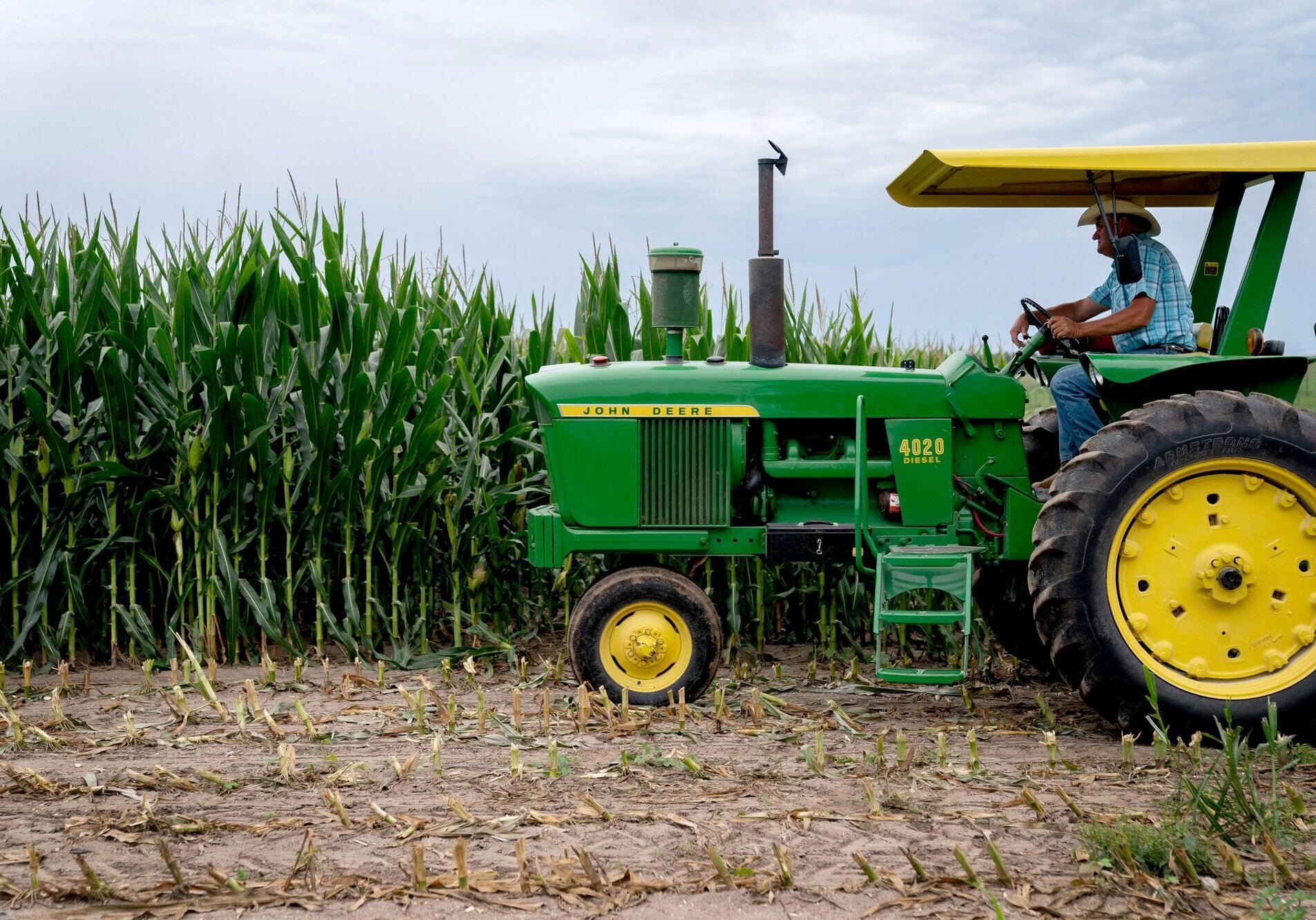
Biofuel Volumes
Agency Action EPA proposed 2026-27 renewable fuel volume mandates for increased soy-based fuels
Why We Commented Growing food crops for fuel uses so much land that it is more harmful to the climate than traditional fossil fuels
Our Partners World Resources Institute, National Wildlife Federation, and others
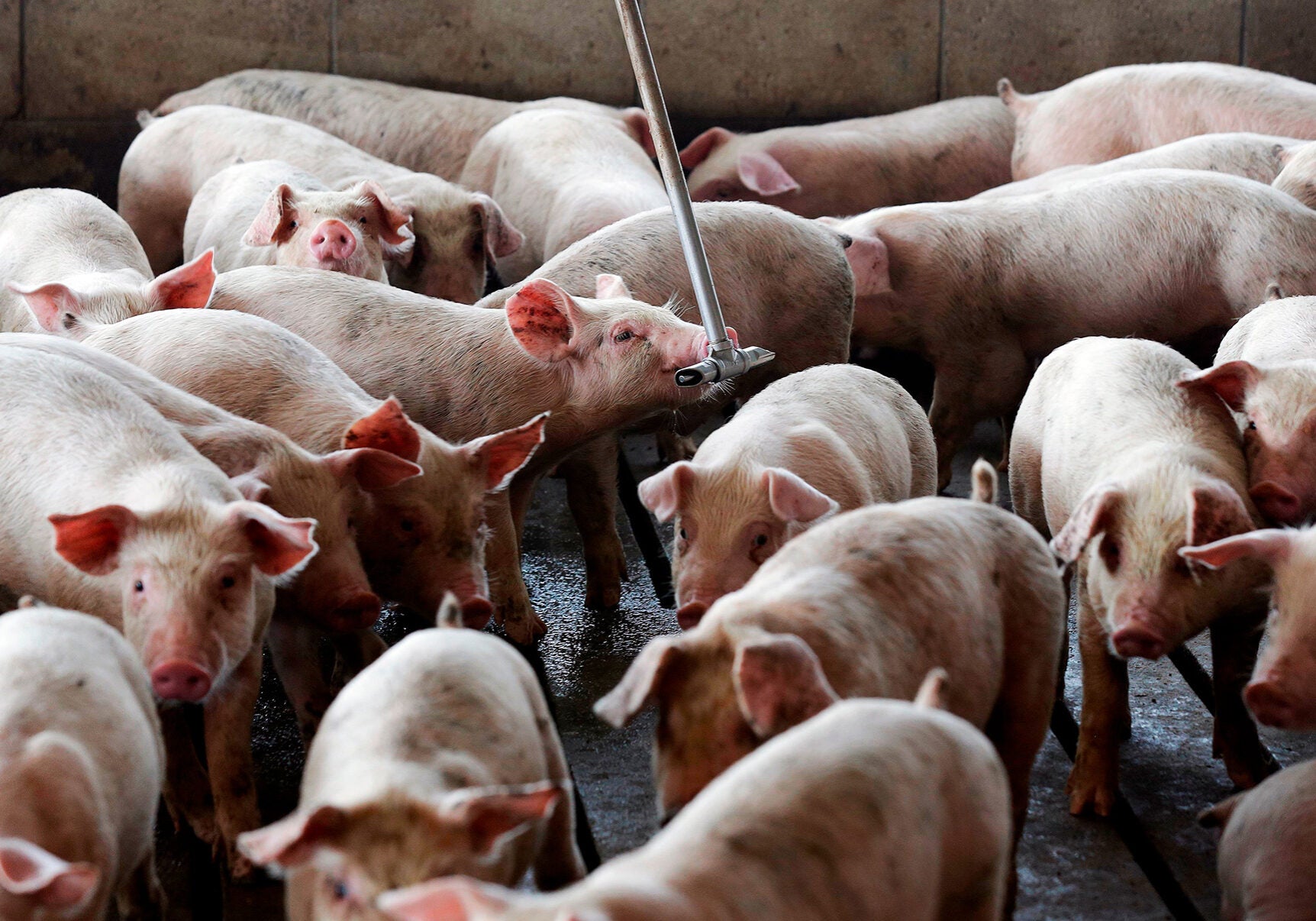
Meat Labels
Agency Action USDA proposal for guidelines to allow meat and poultry labels to include environment-related claims
Why We Commented Consumers will be misled by greenwashing label claims absent adequate regulation or third-party verification
Our Partners Center for Food Safety, FarmSTAND, Food Animal Concerns Trust, Food & Water Watch, and others

National Environmental Policy Act
Agency Action USDA rule to limit its duties and public input under the National Environmental Policy Act
Why We Commented Environmental review and public input lead to accurate data, better decisions, and more equitable outcomes
Our Partners 35 sustainable farming, environmental, community, and health groups
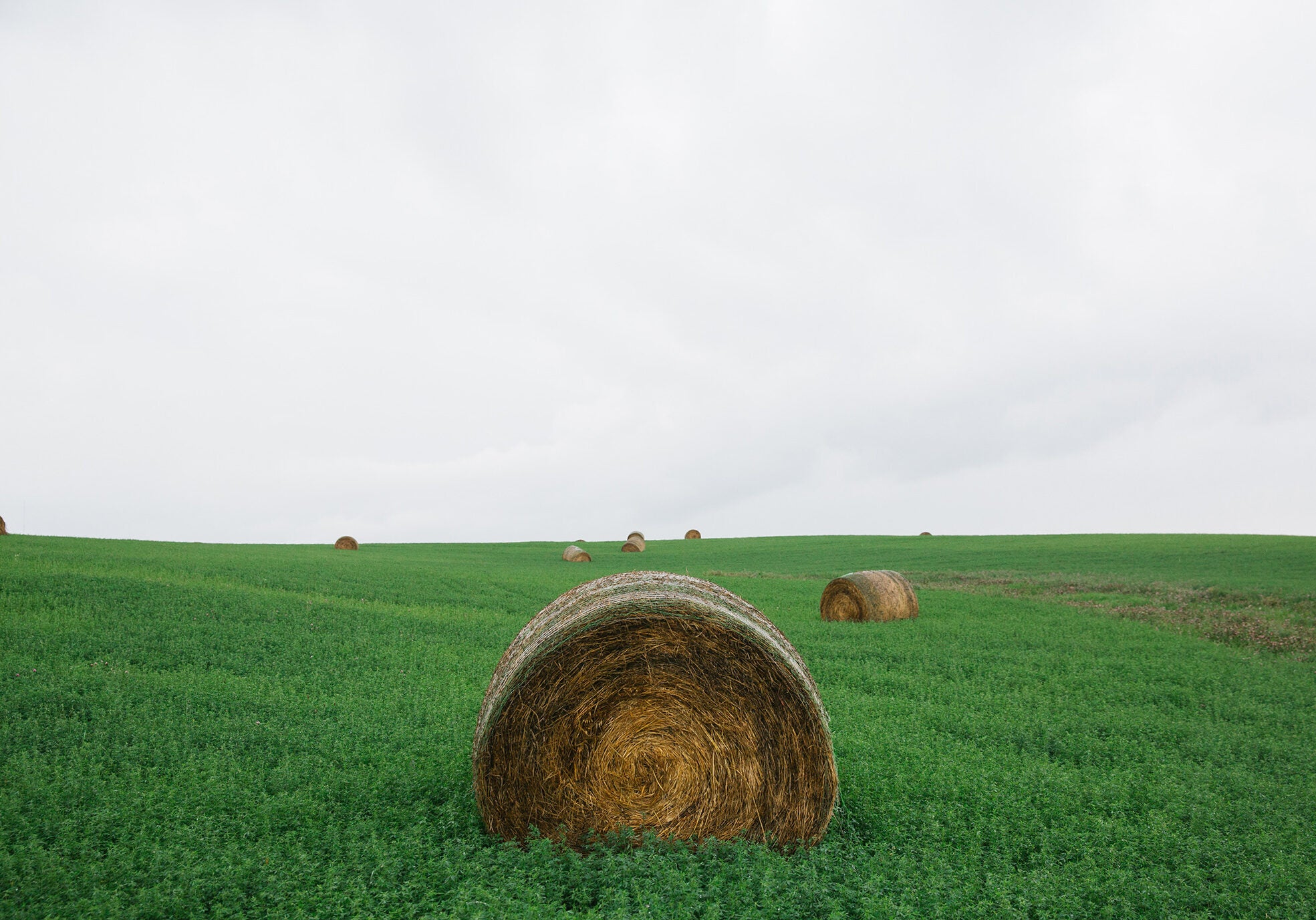
PFAS on Farmland
Agency Action EPA assessment of the risks from PFAS chemicals in sewage sludge spread on farmland
Why We Commented Sewage sludge often contains PFAS chemicals that can contaminate crops, grazing animals, and water supplies
Our Partner Natural Resources Defense Council
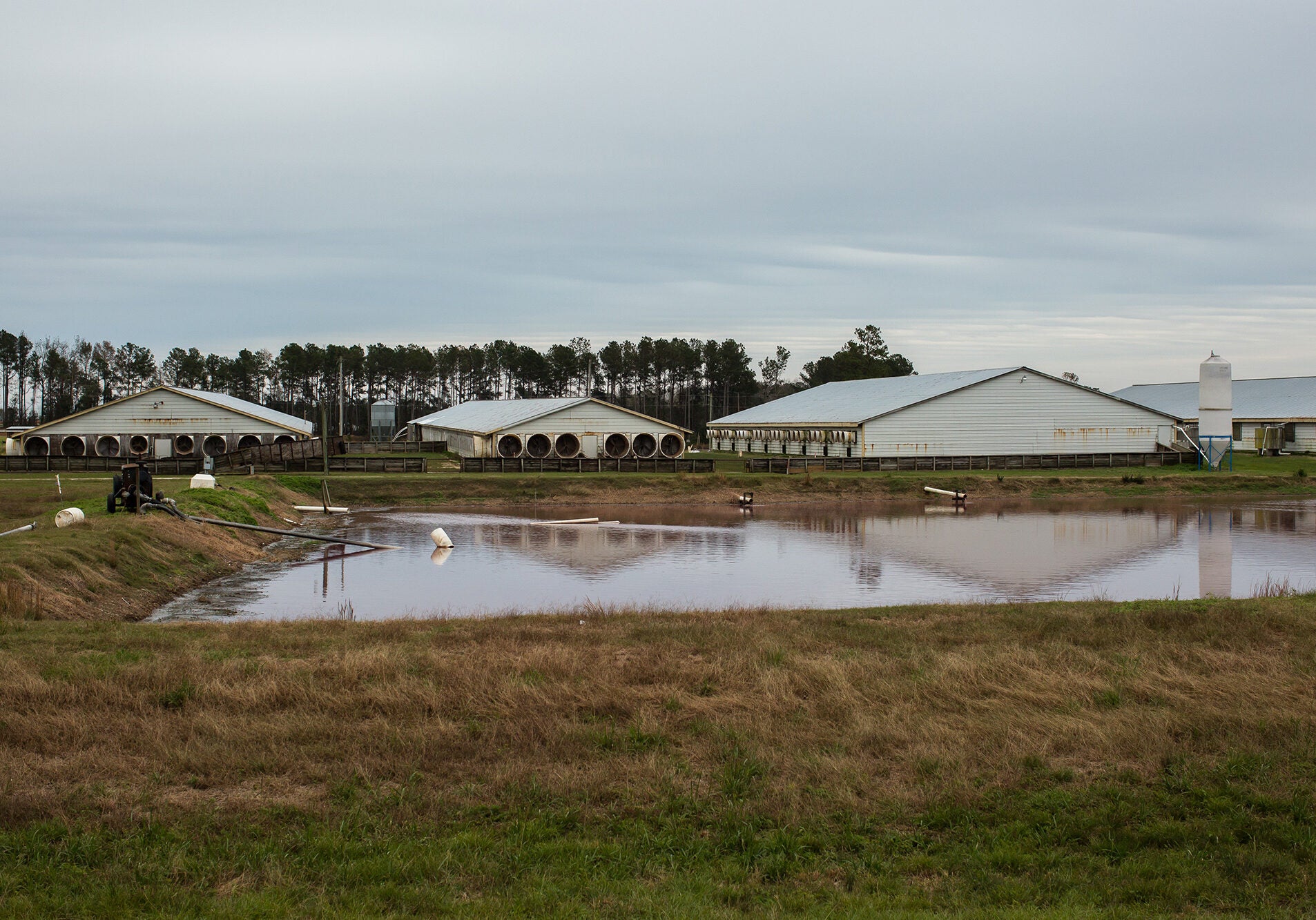
Air Pollution
Agency Action EPA draft methodologies to measure air pollution from animal feeding factories
Why We Commented Animal factories claim there is no legal mandate to control their air pollution until EPA releases methodologies
Our Partners Waterkeeper Alliance, Sierra Club, Socially Resonsible Agriculture Project, and others
JJ Gouin / Getty Images; Mardis Coers / Getty Images; Brad Zweerink / Earthjustice
Getty Images; Stefani Reynolds / AFP via Getty Images; Gerry Broome / AP
Matt Roth for Earthjustice; Brad Zweerink / Earthjustice; Justin Cook for Earthjustice
Progress in States
In addition to our federal efforts, Earthjustice’s Sustainable Food and Farming team is leading state-level work across the country.
 Pennsylvania
Pennsylvania
We worked with a small community in Pennsylvania to draft an ordinance that helps protect public health and the environment from PFAS and other toxic chemicals in sewage sludge. A neighboring municipal sewer authority challenged the ordinance, and we’re defending it in court.
 New Mexico
New Mexico
In January, we submitted comments to the New Mexico Environment Department, urging the agency to deprioritize crop-based feedstocks along with other recommendations so that its “low carbon” fuel standard results in net-climate benefits and true decarbonization.
 California
California
In December 2024, Earthjustice sued the California Air Resources Board over its flawed environmental review for amendments to state’s Low Carbon Fuel Standard. A key issue is the pollution and net-climate harm of biofuels, especially when compared to obviously cleaner alternatives.
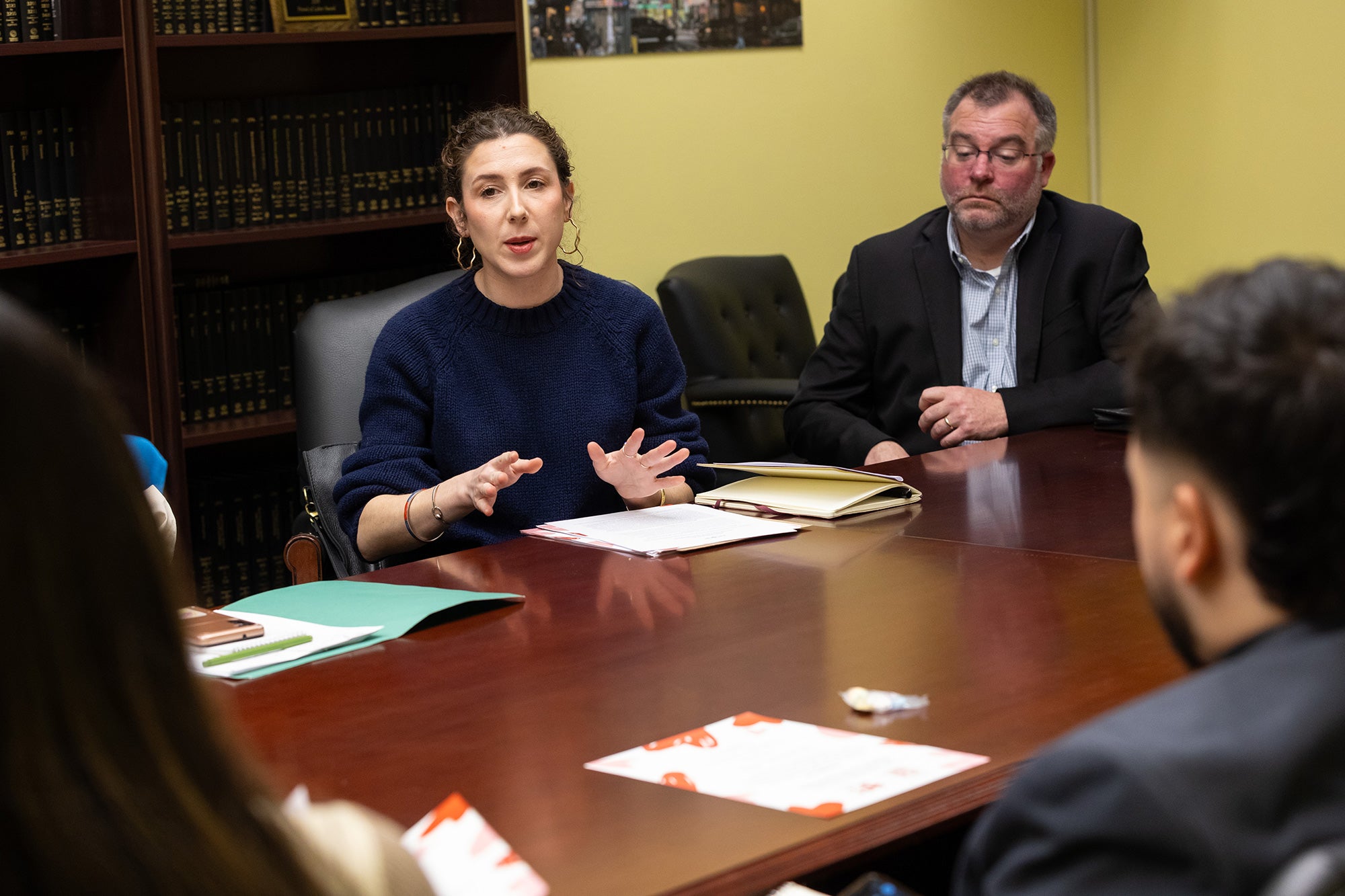
Celebrating Ten Years
Ten years since the launch of Earthjustice’s Sustainable Food and Farming Program in 2015, we celebrate immense progress. Together with our partners, allies, and network of dedicated supporters, we’re advancing our goal of achieving a safe, just, and climate-friendly food system.
Five Ways We’ve Moved the Needle
Positioned ourselves as trusted partners to work with, or fight against, the USDA for climate action as times demand
Earthjustice has built powerful partnerships with individuals, organizations, and other advocates willing to fight to promote and defend climate action. Under some federal administrations, we have built positive relationships and earned respect at the USDA and have been able to work collaboratively with them to increase transparency and accelerate technical and financial support for climate-smart farming practices. With other administrations, we have worked with our partners and allies to fight against rollbacks. But in all cases, we rely on our expertise in the law, our presentation of the science, and our focus on the human impacts of agency decision.
Helped to tear down the meat industry’s climate deception
Science is clear that meat — and especially beef — has a far larger climate footprint than any other food, driving as much as half of agriculture’s climate impact.
Consumers do not want to be misled about the consequences of their choices. But many meat companies make exaggerated claims about their products being climate-friendly in an effort to mask their true climate impact and shirk any responsibility to pay for the damage they cause.
We brought this issue to center stage when our 2022 lawsuit helped obtained an order from the National Advertising Division that JBS, the world’s largest meat company, must stop making the unachievable and misleading claims about “net-zero” beef. In November 2025, we reached a historic settlement in our high-profile greenwashing challenge against Tyson Foods.
With JBS and Tyson together producing about 50% of the beef consumed in the United States, these outcomes represent a positive step in efforts to protect consumers from false and misleading statements made by major beef corporations.
Pushed the EPA to modernize pollution standards for slaughterhouses — and suing to get them rolled out
Thanks to our litigation in partnership with the Environmental Integrity Project (EIP), the EPA calculated and proposed new standards to control water pollution from slaughterhouses and rendering facilities, which together constitute the country’s largest industrial source of phosphorus and nitrogen in water.
The EPA’s current proposal, if implemented, would prevent nearly 100 million pounds of pollution from reaching U.S. waters each year. The Trump administration EPA announced that it would abandon these rules, but we aren’t. Working with EIP, we immediately sued on behalf of 10 organizations — Cape Fear River Watch, Rural Empowerment Association for Community Help, Waterkeeper Alliance, and others — filing a petition in the Ninth Circuit Court of Appeals.
We will continue our litigation as well as pursue policy, communication, and state and local-level strategies to force slaughterhouses to reduce their water pollution and cease any harm to our water supplies.
Catalyzed federal efforts to holistically address pollution from animal factory farms and helped secure stronger state-level regulation
Our work has helped turn the tide on unfettered factory farm pollution. In 2022, together with a coalition of 50 allies, we petitioned the EPA to improve its oversight of water pollution from the largest, dirtiest animal factories, or concentrated animal feeding operations (CAFOs).
Our petition summarized scientific research showing that CAFOs discharge harmful water pollution, incorporated personal stories from people harmed by that pollution, and included a new report detailing disparities in exposure.
In response, the EPA agreed in 2024 to convene a federal advisory subcommittee to develop recommendations for comprehensively addressing CAFO and other animal factory pollution. We have a seat on the subcommittee, as do several of our partners. Although progress has stalled since the second Trump administration took office, the EPA’s actions are a culmination of years of painstaking work and a significant milestone to celebrate.
We’ve also helped reduce CAFO pollution in states that suffer from the worst of it by securing stronger state-issued water pollution permits.
After years of advocacy in North Carolina, we negotiated with the state environmental agency to achieve more protective permit provisions to reduce massive amounts of fecal waste.
Our litigation in New York led the state environmental agency to issue a more transparent permit that provided for better agency oversight. We continue to advocate for stronger protections in these states — and others.
Helped preserve pesticide safety standards for farmworkers and limit use of the most harmful pesticides.
In 2015, Earthjustice and allies helped persuade the Obama administration to make long overdue updates to federal safety standards that protect farmworkers and their families from dangerous pesticides. When the first Trump administration sought to weaken these standards, we sued — successfully — while simultaneously working to convince Congress to preserve them. Now, we are continuing to fight for full implementation of the standards and supporting incentives that help farmers reduce pesticide use altogether.
Using a variety of advocacy strategies, Earthjustice has also successfully raised the alarm about the risks associated with chlorpyrifos and neonicotinoids, resulting in restrictions on their use. We are committed to continue advocating for appropriate oversight of pesticides and other toxic chemicals.
Onward & Thank You
For decades the mainstream environmental movement rarely addressed the environmental and climate harms caused by industrial agriculture, nor was there much common knowledge about the true impacts of our food system.
Through our leadership and advocacy, especially over the past ten years, this is no longer the case. These issues are now part of a larger dialogue with the general public, media, policy makers, and communities, and change is happening.
We would not be here without our courageous clients, powerful partnerships, and a network of supporters who stay with us year after year, through thick and thin. We are fully readied to defend our progress, push forward wherever we can, and pivot where we must. Thank you for joining the fight.
Earthjustice is grateful to those who share our transformative vision for a sustainable food system and step up as partners at every level. We may lose battles in the years ahead, but we aren’t losing the war. And we are only growing stronger and smarter. Thank you for being a part of this work.
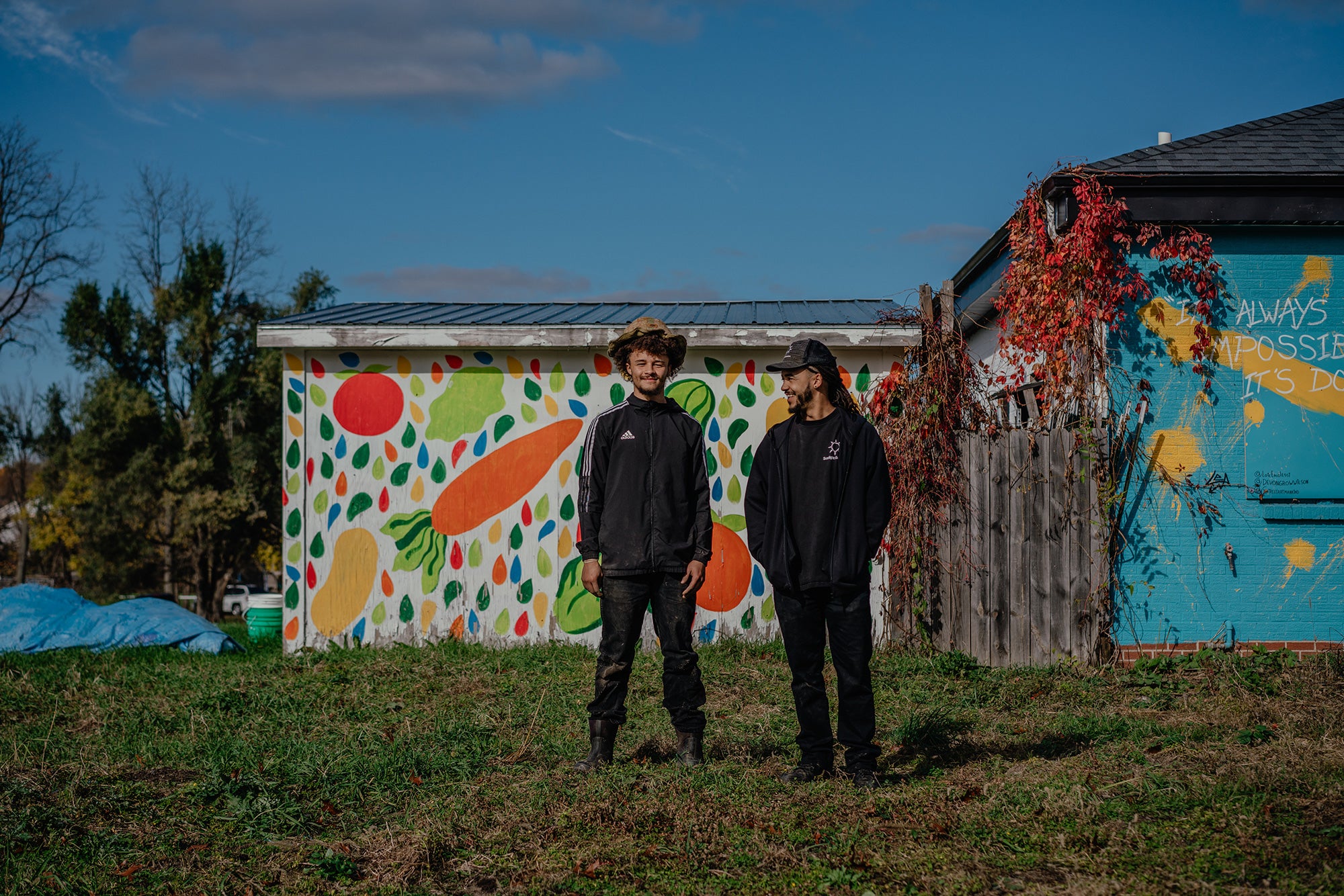


The Power of Public Comments
We frequently work with partners to submit detailed comments on agency proposals. Our comments lay the groundwork for future litigation by helping to shape the agency’s “record” — the body of evidence against which its final action will be judged. Below are some recent comments we submitted as part of our work to reveal the true impacts of agriculture.